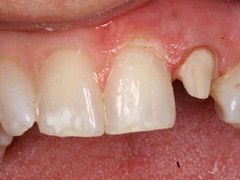If you have a damaged or weakened tooth, a dental crown may be the best solution to restore its strength, function and appearance. Whether you are dealing with a cracked tooth, severe decay or extensive wear, dental crowns provide a durable and natural-looking option to protect your smile. With advancements in modern dentistry, crowns blend seamlessly with your existing teeth, ensuring both aesthetic appeal and long-term protection.
What Are Dental Crowns?
A dental crown is a custom-made restoration that covers the entire surface of a tooth, acting as a protective cap. Crowns are typically made from porcelain, ceramic, metal or a combination of materials, depending on your specific needs. These restorations are ideal for preserving the integrity of a tooth that is too damaged for a filling but does not require extraction.
Crowns not only restore the shape and function of a tooth but also enhance its appearance. Whether you need to cover a discolored or misshapen tooth or protect a tooth after a root canal, a crown provides a reliable solution that improves both form and function.
The Benefits of Dental Crowns
Dental crowns offer numerous advantages, making them a preferred treatment for restoring damaged teeth. Some key benefits include:
- Strength and Durability – Crowns reinforce weakened teeth, allowing you to chew and speak comfortably.
- Aesthetic Enhancement – Porcelain and ceramic crowns closely resemble natural teeth, blending seamlessly with your smile.
- Protection from Further Damage – Crowns shield teeth from further wear, fractures or decay.
- Restoration of Function – Crowns restore proper bite alignment and chewing function, improving overall dental health.
- Support for Dental Restorations – Crowns are often used to complete dental implants or bridges, replacing missing teeth with long-lasting results.
The Dental Crown Process
Receiving a dental crown typically involves two visits. During the first appointment, our skilled dentists will prepare the tooth by removing any decay and shaping it to accommodate the crown. Impressions of your teeth are then taken to create a custom restoration that fits perfectly. A temporary crown is placed to protect the tooth while the permanent crown is being crafted.
At the second appointment, Dr. Jai V. Patel, DDS or Dr. Rahil H. Patel, DDS will remove the temporary crown and securely bond the custom crown to your tooth. After ensuring proper fit and comfort, you will leave with a beautifully restored smile.
Restore Your Smile With a Custom Dental Crown
A dental crown is an excellent investment in your oral health, providing both protection and aesthetic enhancement. To learn more about how dental crowns in Sugar Land, Texas, can restore your smile and schedule a consultation with our dentists, contact Sugar Land Dental Associates today at 281-207-4161.
Before

After

Frequently Asked Questions About Dental Crowns
How do I know if I need a dental crown?
A dental crown may be necessary if you have a tooth that is severely weakened, cracked or damaged beyond what a filling can repair. It can also be recommended after a root canal to protect the tooth or to restore a tooth that has been worn down from grinding. Our dentists will evaluate your situation and determine if a crown is the best option for long-term durability and function.
What materials are used to make dental crowns?
Dental crowns can be made from a variety of materials, including porcelain, ceramic, metal alloys and porcelain fused to metal. The choice of material depends on factors such as the location of the tooth, aesthetic preferences and the level of strength needed. Porcelain and ceramic crowns are popular for their natural appearance, while metal options are valued for their durability, especially for back teeth.
How long does a dental crown last?
With proper care, a dental crown can last anywhere from 10 to 15 years or more. Longevity depends on factors such as oral hygiene habits, biting forces and the material used. To extend the life of your crown, it is important to brush and floss daily, avoid chewing hard objects and visit our dentists and team regularly for checkups.
Is getting a dental crown a painful process?
The procedure for placing a dental crown is not typically painful, as our dentists will use a local anesthetic to numb the area. You may experience some sensitivity or mild discomfort after the preparation and placement, but this usually subsides within a few days. We will ensure you are comfortable throughout the process and provide aftercare instructions to minimize any temporary soreness.
